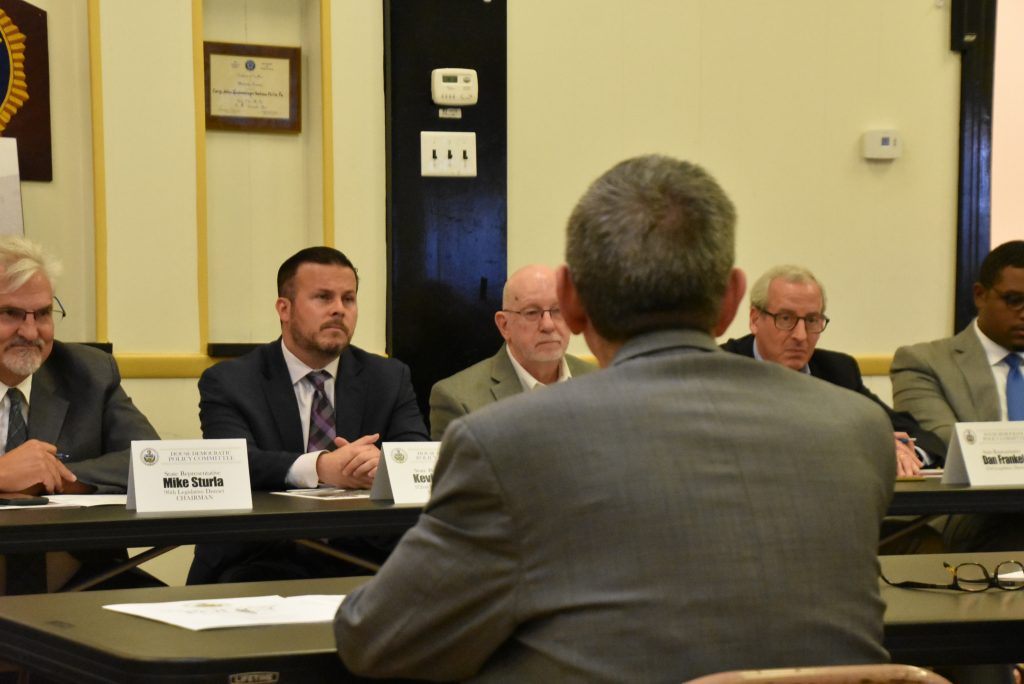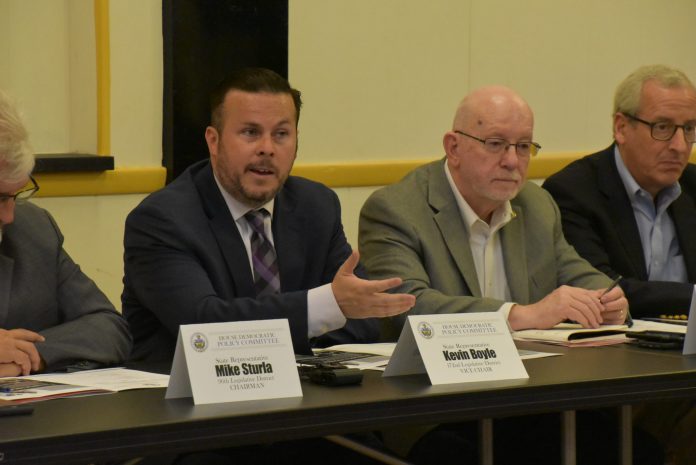In light of Hahnemann University Hospital’s pending shutdown, Democratic state representatives met last week in Fox Chase to discuss ways to prevent further hospital closures in the city and around the state.
Though much of the meeting focused on the impact of Hahnemann’s demise, there was talk about Jeanes Hospital, part of Temple University Health System, and Fox Chase Cancer Center.
The hearing came before Monday’s announcement that Temple University has agreed to sell FCCC to Thomas Jefferson University.
State Rep. Kevin Boyle, who hosted the House Democratic Policy Committee hearing on July 22 at American Legion Post 366, said he has heard residents express concerns about the two-hospital complex, which he said collectively serve as Northeast Philadelphia’s biggest job creator.
“I know many of my constituents in Northeast Philadelphia, they see the experiences that Northeastern (Hospital) and see the experiences now at Hahnemann, and they frankly get a little concerned, a little afraid that the future of urban hospitals, like Jeanes, could be in peril,” Boyle said.
Dr. Marc Hurowitz, CEO of Jeanes and Temple Physicians Inc., who testified at the hearing, said Jeanes and Temple are working on providing more services at the hospital, with the goal of serving more patients and “potentially, financial viability.”

“Temple recognizes the value of Jeanes and continues to invest in it,” Hurowitz said in an interview after the meeting.
Hurowitz, during the hearing, spoke about his time as chief medical officer of Northeastern Hospital in Port Richmond. He oversaw the closure of the hospital in 2009.
The facility now operates as an ambulatory care center, urgent care and provides other healthcare services.
When it shut down, half of Northeastern’s patients were using Medicaid, Hurowitz said. The situation at Jeanes is a little different — around 25 percent of people in Jeanes’ service area are enrolled in Medicaid, according to a Temple report.
Hahnemann, which is scheduled to close in September and reportedly has only a handful of patients remaining, served a large percentage of people with government health insurance.
“My concern is that we’re seeing the deterioration of the for-profit healthcare system, and we’re seeing patients increasingly thrown to the margins and not being able to access healthcare,” Boyle said.
Nearly a dozen Democratic state lawmakers attended the hearing, and many of the panelists criticized Hahnemann’s owner, American Academic Health System and its CEO, Joel Freedman.
U.S. Rep. Brendan Boyle testified, calling Hahnemann’s closure a “crisis” that will cost lives. He also suggested that bankruptcy could have been in the cards when American Academic purchased the hospital last year.
“Was this mismanagement?” Brendan Boyle said. “Or, given (Freedman’s) previous history… I think there’s very much a reason to believe this was always part of the plan.”
American Academic and Freedman could not be reached for comment. The company has cited severe financial difficulties — saying the hospital has been losing millions each month — as the reason for the shutdown.
Congressman Boyle said he plans to introduce legislation in Washington this week to create a $20 billion fund to support state and local entities looking to buy “safety net” hospitals that serve mostly poor patients.
The fund would cover no more than 75 percent of the purchasing cost of the medical center and would prioritize struggling inner-city and rural hospitals, he said. Applicants also must not be able to finance the project on their own.
“As bad as the closure of Hahnemann Hospital will be, it’s what might happen next,” Brendan Boyle said. “To put it in perspective, there were four times as many hospitals — four times — in the Philadelphia area four decades ago than there are today.”
Hurowitz and Bill Ryan, assistant vice president of government relations and public affairs for Einstein Health Network, asked lawmakers to redirect state money dedicated to Hahnemann, a figure Ryan put at $50 million, to nearby hospitals.
State Rep. Dan Frankel, of Allegheny County, minority chair of the House Health Committee, said he plans to work with members of the Philadelphia delegation to make sure the money stays in the area. ••






